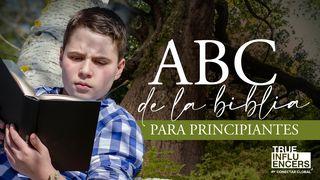In God’s Garden Muestra

Mustard Seed
The Bible is full of metaphors that come from plant life: sowing, pruning, tending, reaping, and storing; seeds, stalks, fruit, chaff, and leaves. “The grass withers, the flower fades: but the word of our God shall stand for ever,” Isaiah wrote (Isaiah 40:8). “The kingdom of heaven is likened to a man which sowed good seed in his field,” Jesus explains in Matthew 13:24. A few verses later, He begins another parable with, “The kingdom of heaven is like to a grain of mustard seed” (verse 31). What is it about the mustard seed that makes it such a fitting example of the kingdom of God?
The mustard plant is an annual herb that germinates quickly. The seed is tiny—only one to two millimeters in diameter—but the mustard plant soon towers over other common garden herbs, eventually producing an enormous number of yellow flowers. The mustard of the Judea region was black, unlike the yellow mustard many people are used to today. Christ’s parable of the kingdom of God would have been a vivid image to the listeners who had carefully planted the miniscule seeds in their gardens and then watched the plants rapidly stretch upward. In the same way, the kingdom, planted by Christ in one tiny region of the world, quickly reached across the globe, and it is still extending to “all nations, and kindreds, and people, and tongues” (Revelation 7:9).
Escritura
Acerca de este Plan

Consider not only the lilies of the field, but all the plants, trees, herbs, shrubs, and flowers that play a role in the biblical narrative. The Bible is peppered with allusions to the plants that were a part of daily life in the ancient Near East and New Testament Israel. With original illustrations, this devotional clarifies the biblical references to five different plants while providing meaningful insights into God’s Word.
More
Planes relacionados

La Gracia. 7 Claves Para Vivir en Plenitud.

Confiando en Los Propósitos De Dios

ABC De La Oración ... Para Principiantes.

ABC De La Biblia Para Principiantes
Marcas De Un Discípulo

¡Levántate! 7 Claves Para Levantarte Y Seguir.

Testigos Del Milagro: La Primera Navidad

Que El Mundo Crea

